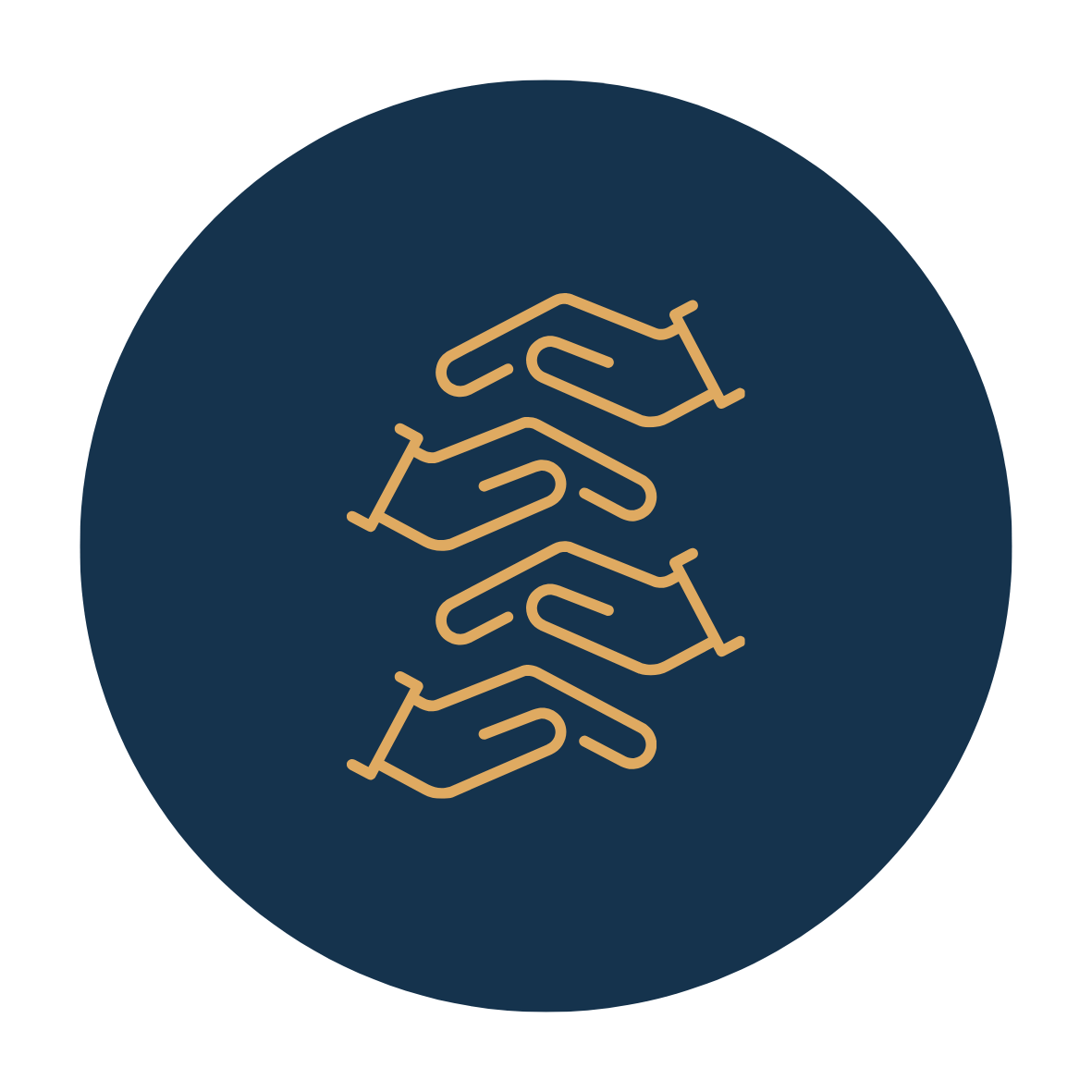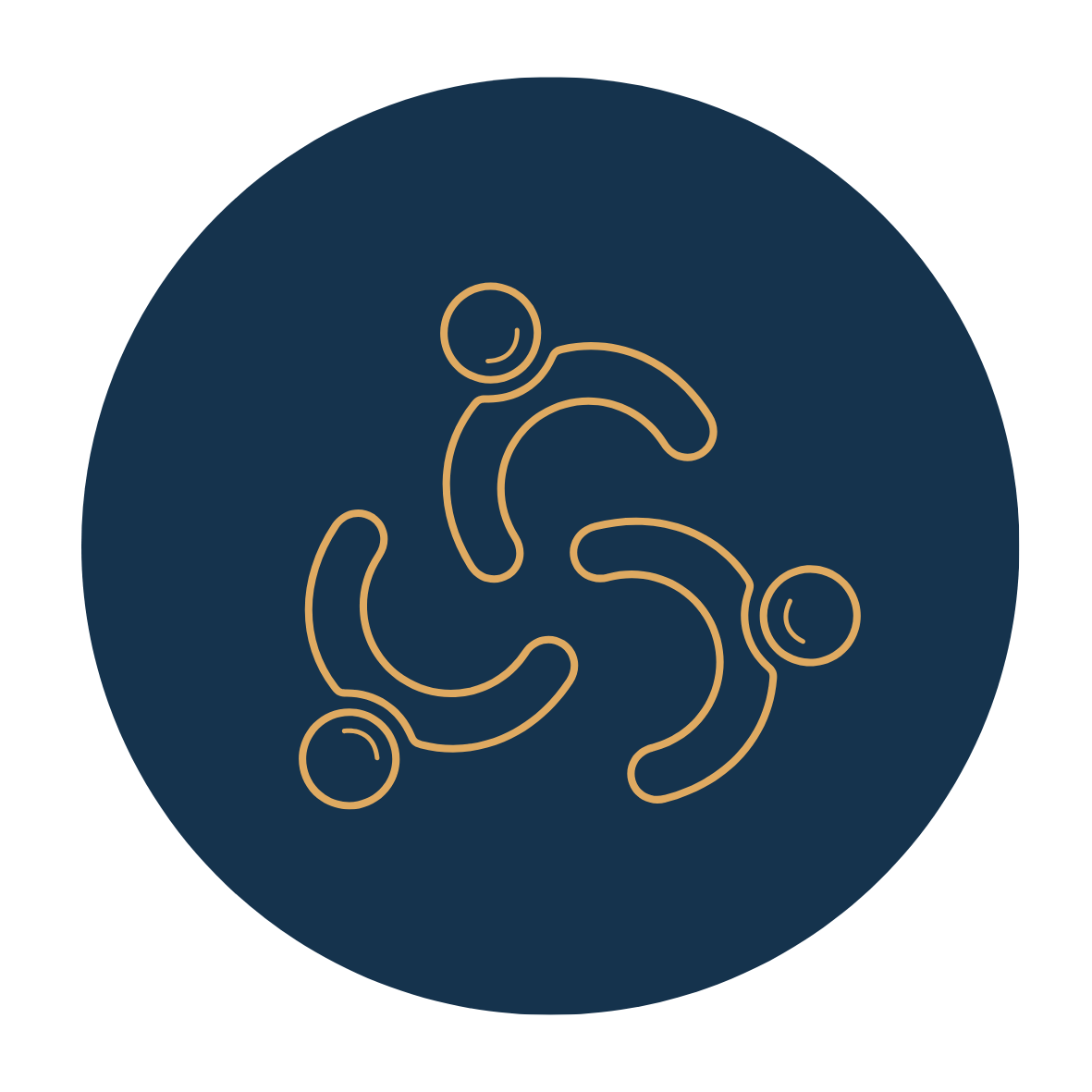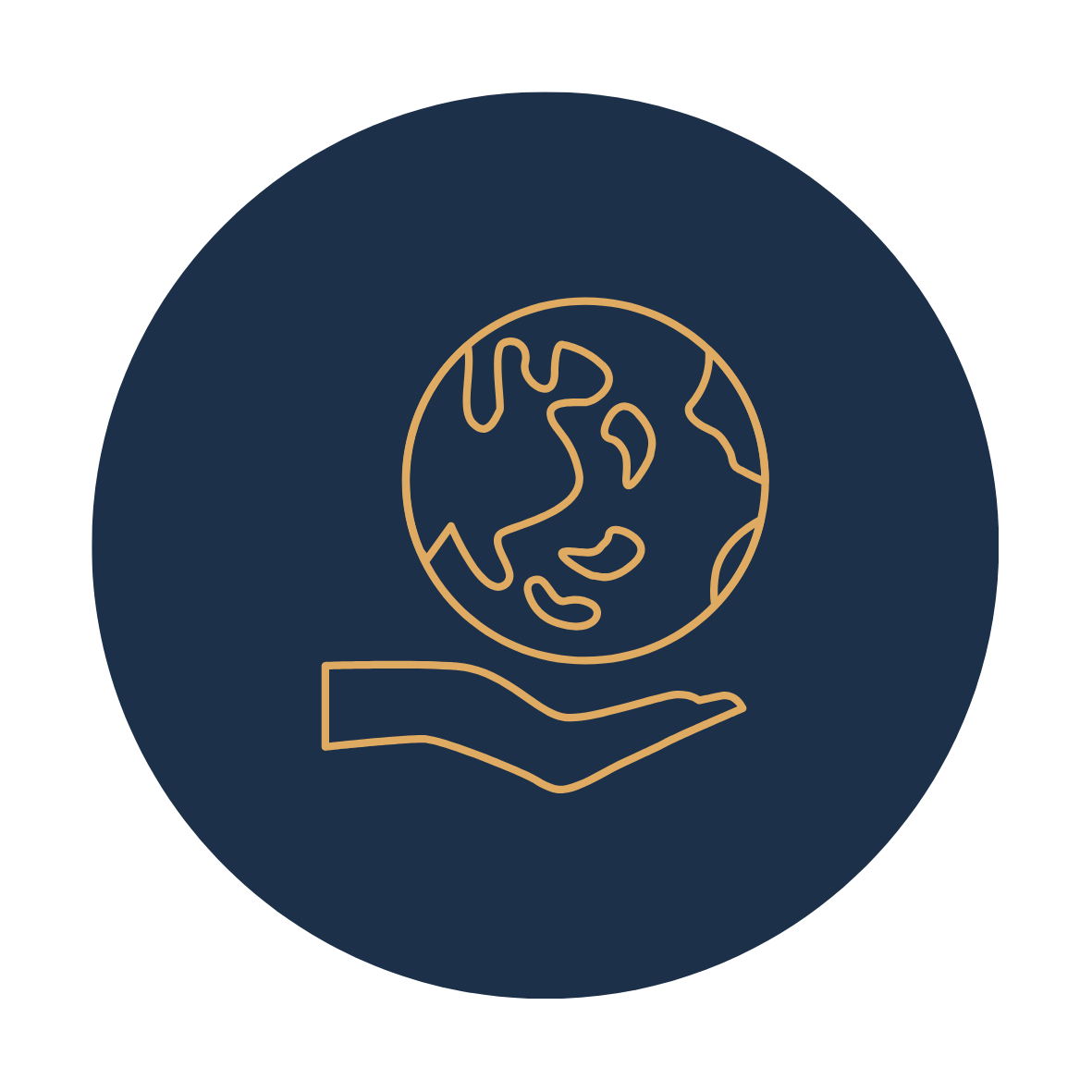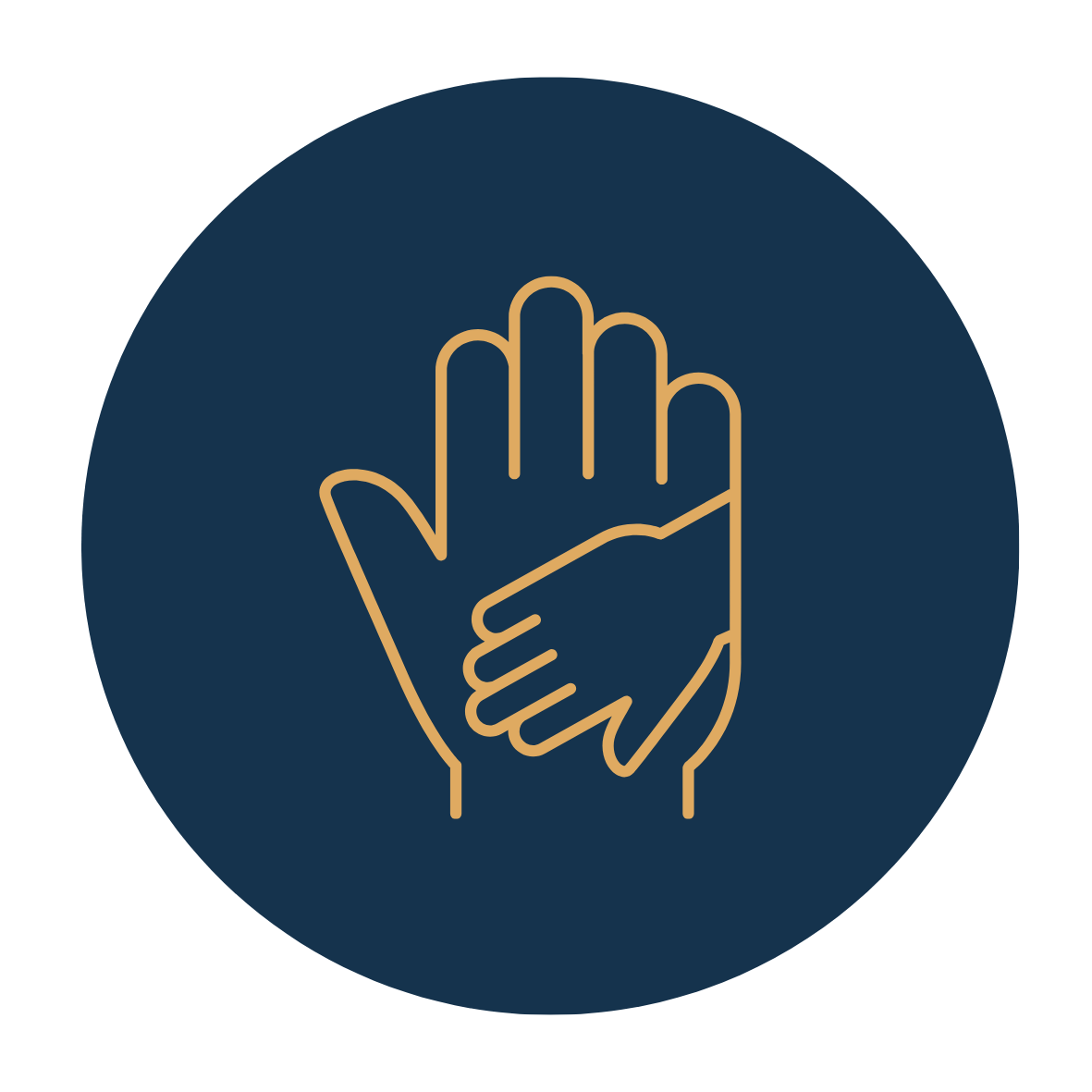Morning Sessions June 29th
THE ROLE OF SOCIODRAMA IN LEADERSHIP DEVELOPMENT,
IN THE LIGHT OF OTHER SIMILAR METHODS
PRESENTER: MÁTYÁS HARTYÁNDI
IN THE LIGHT OF OTHER SIMILAR METHODS
DATE AND TIME: 29th of June, Saturday 9:00-9:50
CONFERENCE TOPIC: Sociodrama and organisational development, team coaching and training
TYPE: Presentation
ROOM:
NUMBER OF PARTICIPANTS: 50
TAGS: Organisational Development, June29 Morning
ABSTRACT:
Many leadership development methods involve a degree of role-playing, including basket-case scenarios, business simulations, serious games, educational live-action role-playing games, coaching interventions, etc.
In this presentation, I outline my PhD research that attempts to contextualize the role that Moreno-rooted dramatic methods like sociodrama can take in leadership development interventions.
After this session participants will be able to compare sociodrama to other methods in leadership development, and define their similarities and differences. Participants will also be able to report on the current state of sociodrama research.
ABOUT THE PRESENTER:

Mátyás Hartyándi is a mental health specialist, trainer and organization development consultant. He researches human resource development and roleplay-based experiential learning methods at the Corvinus University of Budapest, Hungary. He is a member of the International Simulation and Gaming Association. He is finishing his training as a psychodrama assistant.
DECENTRALIZED SUPERVISION:
DRAMATIC MULTIPLICATION AS A METHODOLOGY
PRESENTER: DAYSE BISPO SILVA
DRAMATIC MULTIPLICATION AS A METHODOLOGY
DATE AND TIME: 29th of June, Saturday 9:00-9:50
CONFERENCE TOPIC: Sociodrama and power – the future of democratic values
TYPE: Presentation
ROOM:
NUMBER OF PARTICIPANTS: 30
TAGS: Sociodrama and Power, June29 Morning
ABSTRACT:
This is a presentation of the experience of an online supervision group (and some face-to-face ones) in which we used the group dispositive of Dramatic Multiplication as a methodology to decentralize the figure of the supervisor, in the direction of a more collective and co-vision stance. In this presentation we will talk about Dramatic Multiplication, its effects in a supervision group and a reflection on the songs sung in the sessions, as a commentary on the experience. After this session participants will be able to explore more possibilities of decentralised supervision.
ABOUT THE PRESENTER:
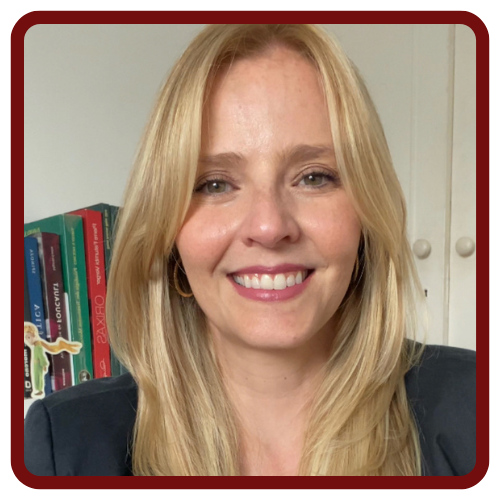
Psychologist and Psychodramatist, PhD em Social Psychology, professor of Psychodrama at PUC-SP, president of SOPSP (São Paulo Society of Psychodrama). Have a vast experience in the Brazilian Mental Heath field. Since 2021 is focusing on Psychodrama (practicing and teaching), harm reduction and psychotherapy assisted with psychedelics.
THE USE OF SOCIODRAMA IN A PARTICIPATORY, MULTIMODAL, EXPERIENTIAL STUDY OF SOCIAL ISSUES
PRESENTERS: PHILIA ISSARI – GEORGIOS CHANIOTIS – KATERINA LIOLIOU
DATE AND TIME: 29th of June, Saturday 9:00-9:50
CONFERENCE TOPIC: Sociodrama and different social groups – the strenghts of communities
TYPE: Presentation
ROOM:
NUMBER OF PARTICIPANTS: Any
TAGS: Different Social Groups, June29 Morning
ABSTRACT:
This presentation describes the way sociodrama was used in the context of an innovative transdisciplinary project entitled “Transition to 8: Bridging social issues, tech and contemporary art”, that applied multimodal methods for studying the impact of social issues on citizens and bridging them with technology and contemporary art.
Along with other participatory arts-based approaches, such as the use of social theatre (Saldaña, 2011), sociodrama has developed in recent years from an innovative method of qualitative analysis for social issues into a major transformative intervention for community development (Conrad & Sinner, 2015). In this study, we used sociodrama as an approach that is both inherently embodied and socially minded. Data generation took place in the context of six sociodrama sessions that is, two sessions per subject (environment, labour, migration), in which Eleusis residents were called upon to enact their perspectives, concerns and experiences regarding living in Eleusis on topics that were identified as central concerns for the local community. Each session lasted approximately one-and-a-half hours. The sessions were facilitated by two experienced sociodramatists, members of the research team, who introduced the rationale, the process and the activities of the sessions. In line with the researchers’ interest in multimodal research, the sessions were video- and audio-recorded. Biometric data via wearable sensor, resembling that of smart watches, measuring physiological signals affiliated with emotional arousal were obtained from the participants who felt comfortable wearing the devices.
Data from the sessions were provided to artists, in the form of sound, visual, biometric and verbal elements, which constitute sources of inspiration for their artistic productions. Examples from the research findings will be presented in a multimodal way.
ABOUT THE PRESENTERS:
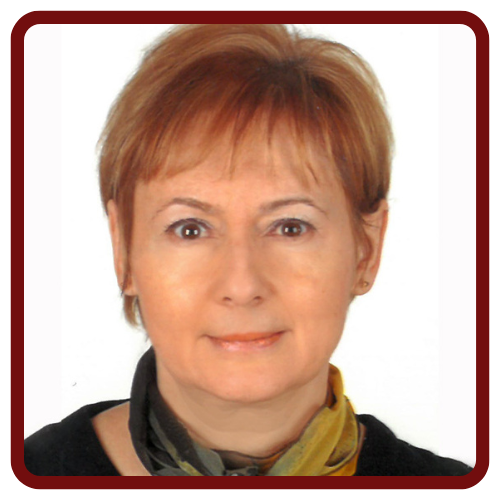
Philia Issari is Associate Professor of Counseling Psychology and Founding Director of the Centre for Qualitative Research in Psychology and Psychosocial Well-being at the Department of Psychology, National and Kapodistrian University of Athens
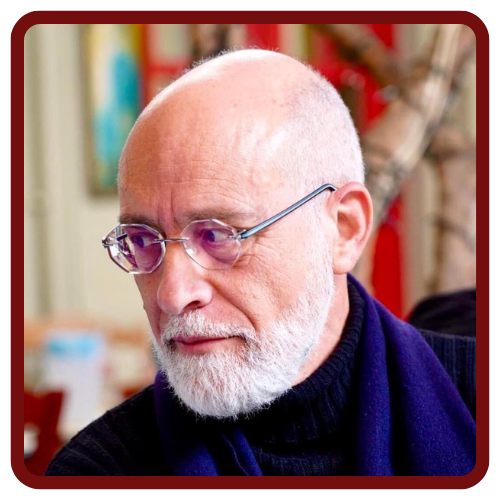
Georgios CHANIOTIS: Sociodramatist-Psychodramatist,
Member of the International Committee on Advisors of the International Sociodrama Conference, Organizer of the 5th International Sociodrama Conference – Greece.

Katerina Lioliou: educator and psychodramatist.
Since 2009 she has coordinated training seminars for primary school teachers, psychodrama groups (Health Centre of the Municipality of Agioi Anargyroi etc.) and has taught in educational programmes (Roma training programme, addiction prevention programmes etc.). Her project “Psychodrama at school” was based on experiential work with primary school children during her employment in public education.
BRIDGING ANCIENT RITUAL PERFORMANCE AND CONTEMPORARY SOCIODRAMA:
A HISTORICAL PERSPECTIVE
PRESENTER: LUIGI LAFASCIANO
A HISTORICAL PERSPECTIVE
DATE AND TIME: 29th of June, Saturday 9:00-9:50
CONFERENCE TOPIC: Sociodrama and the development of creative collectives – local and transnational sociodramatic communities and networks
TYPE: Presentation
ROOM:
NUMBER OF PARTICIPANTS: 70
TAGS: Creative Collectives, June29 Morning
ABSTRACT:
This presentation highlights the intersection of historical research on ancient performance-oriented healing rituals and the contemporary practices of psychodrama and sociodrama, showcasing the mutual interest shared by historians and therapists.
My work delves into the evolution of ancient therapeutic rituals. One notable example is the practice within the cult of Asklepios, the Greek god of medicine. Its rituals centered around therapeutic incubation, or ritual dreaming, where devotees sought divine intervention and healing through dream visions. This ritual’s evolution is intricately linked to theater, as sacred performances in theaters were employed to make divine experiences accessible to worshippers even before they engaged in ritual dreaming. These practices not only nurtured individual imagery but also formed therapeutic communities. Devotees, all seeking divine visions for healing, found themselves restored to meaningful social roles due to their intimate connection with the divine and the invisible realm.
The prospect of engaging in dialogue with therapists and researchers immersed in psychodrama and sociodrama methods holds great promise for mutual enrichment. Historical insights can contribute to innovative approaches in modern therapy, while therapists can offer valuable perspectives to deepen our understanding of ancient therapeutic rituals’ dynamics. This synergy offers the potential for a more profound comprehension of the intricate interplay between performance and therapy across time.
- Participants will develop the ability to discern meaningful correlations between ancient performance-based traditions and contemporary psychodrama and sociodrama therapeutic methods.
- Participants will enhance their existing skill sets by integrating well-researched insights from the historical utilization of performance as a therapeutic modality.
ABOUT THE PRESENTER:
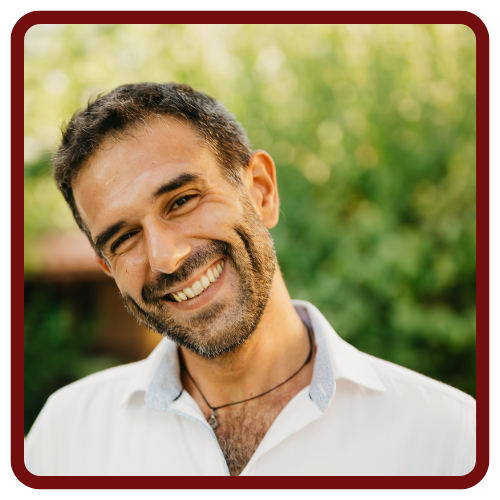
I possess a unique background in Archaeology and Religious Anthropology. My research, published in a book and several articles, explores ancient performance-oriented healing rituals and the intricate connection between theatrical and ritual performances in ritually-induced therapeutic dream visions. As the Founder and Director of The Diakron Institute, an international NGO fostering cross-cultural perspectives, I have led multisensory educational programs across Europe. While not directly experienced in psychodrama and sociodrama, I am eager to engage with professionals in the field to enrich my research and educational initiatives.
UNVEILING LAYERS OF METATHEATRE IN CHEKHOV’S ‘THE SEAGULL’:
A SOCIODRAMATIC ANALYSIS OF TREPLEV’S PLAY AND ITS IMPLICATIONS
PRESENTER: HOSSEIN OROUMIEHCHIHA
A SOCIODRAMATIC ANALYSIS OF TREPLEV’S PLAY AND ITS IMPLICATIONS
DATE AND TIME: 29th of June, Saturday 9:00-9:50
CONFERENCE TOPIC: Sociodrama and more – Widening the scope of sociodrama: related fields, methodological exploration
TYPE: Presentation
ROOM:
NUMBER OF PARTICIPANTS: 15
TAGS: Sociodrama and More, June29 Morning
ABSTRACT:
This presentation will look into the metatheatrical aspects of Anton Chekhov’s “The Seagull,” with a special focus on the play that Treplev, one of the characters, stages. We use Jacob L. Moreno’s sociodrama theory to understand how personal problems and social rules are connected in the play. A key part of this is the new kind of play Treplev creates, which is very different from the traditional theater that his mother, Arkadina, represents. We analyze how Treplev is trying to find his own artistic voice and identity, showing the big conflicts between different generations and ideas at that time.
In this presentation, we will use sociodrama to look at important themes like being true to art, problems within families, and the pressure to follow social norms. We also think about how the audience is involved in this metatheatrical setting. This shows how Chekhov mixes acting and real life, making people think about their own roles and identities in society.
To end, we will see “The Seagull” as a strong tool for sociodrama. It shows complicated relationships between people and social expectations, and it makes us think deeply about art, who we are, and how people interact with each other. This deep look at Chekhov’s play gives us a new way to see its lasting importance and artistic beauty.
Learning Objectives:
1. Attendees will learn to find and understand the metatheatrical parts in “The Seagull,” and see why they are important for showing social and personal issues.
2. Participants will learn more about how drama can be used to study society and psychology, and see how dramatic literature affects how the audience sees and interacts with the play.
ABOUT THE PRESENTER:

I hold a Bachelor’s in Russian Language and a Master’s in Dramatic Literature in Iran, where my thesis examined the translation of Anton Chekhov’s plays in Persian across different periods.
In 2022, I was accepted as a Ph.D. student at Charles University. My research, guided by Dr. Alena Sarkissian, delves into the traumatic experiences of prominent characters in Chekhov’s plays.
My academic interests lie in trauma studies, highlighting my dedication to exploring the psychological depths and cultural impact of literary works, especially within the realm of Russian literature.
BEYOND THE HERE AND NOW – KNOWLEDGE GENERATED IN SOCIODRAMA:
THE BRIDGE OVER THE GAP BETWEEN PERSONAL EXPERIENCE AND GENERAL SOCIAL REALITY.
A DRAMATIC WORKSHOP
PRESENTER: ÁGNES BLASKÓ – JANA DAMJANOV – LUCY DAVIES – ZSÓFIA KOLLÁNYI – ORSOLYA LELKES -SARAH-JANE LENNIE – ESZTER NEUMANN – LEYLA SAFTA-ZECHERIA
THE BRIDGE OVER THE GAP BETWEEN PERSONAL EXPERIENCE AND GENERAL SOCIAL REALITY.
A DRAMATIC WORKSHOP
DATE AND TIME: 29th of June, Saturday 9:00-12:30
CONFERENCE TOPIC: Sociodrama and more – Widening the scope of sociodrama: related fields, methodological exploration
TYPE: Workshop
ROOM:
NUMBER OF PARTICIPANTS: 20
TAGS: Sociodrama and More, June29 Morning
ABSTRACT:
Moreno viewed sociodrama as the ultimate tool for social research, an idea dramatists resonate with due to its broad applicability across diverse social groups. Despite historical hesitations, academia is increasingly embracing dramatic tools as a qualitative research method. The Drama as Academic Research (DAR) Research Group, an international group of researchers from various scientific fields and drama practitioners themselves, invites academic researchers and dramatists to explore criteria and methods for generating knowledge through drama. The workshop aims to chart a path for leveraging drama’s potential in producing academically valuable insights.
At the workshop, after a short introduction of findings and experiences of the Research Group so far, we place our topic on a sociodramatic stage, representing key „actors” – such as reality (whatever that means); dramatic methods; other, traditionally established data collection methods; people form the Academia not familiar with dramatic methods; the “subject” of the research; and anyone and anything the participants bring in – and see how the scene unfolds itself in the process of co-creation. We hope to gain insights into epistemological questions surrounding knowledge derived from drama, addressing issues and dilemmas tied to the dramatic modality, ethical considerations, and the researcher’s role.
Learning objectives: Participants develop an understanding of needs and requirements of academic research related to dramatic methods, and an insight into challenges and opportunities of dramatic methods as a research tool in terms of data validity, research ethics, transferability, and so on
ABOUT THE PRESENTERS:
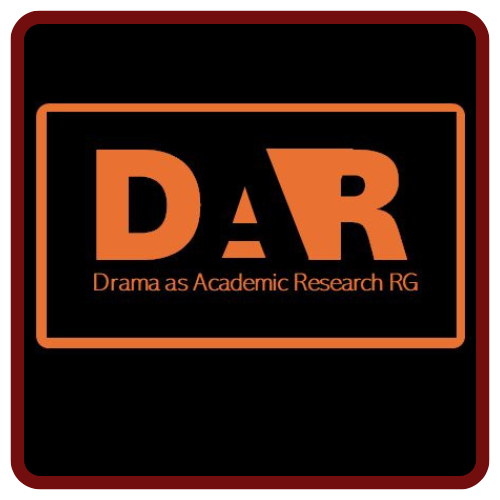
The Drama as Academic Research Group (DAR-RG) was founded in 2023, aiming to explore the possibility of dramatic methods applied as an academic research tool. Founders and contributors of DAR-RG involved in the workshop are both academic researchers from various fields of science and humanities, and practitioners of a variety of dramatic methods, including psychodrama, sociodrama, forum theater, etc., and bring experiences from this dual role in the workshop.

Ágnes Blaskó, HU
Sociodrama facilitator, social scientist
Budapest University of Technology and Economics, Department of Sociology and Communication
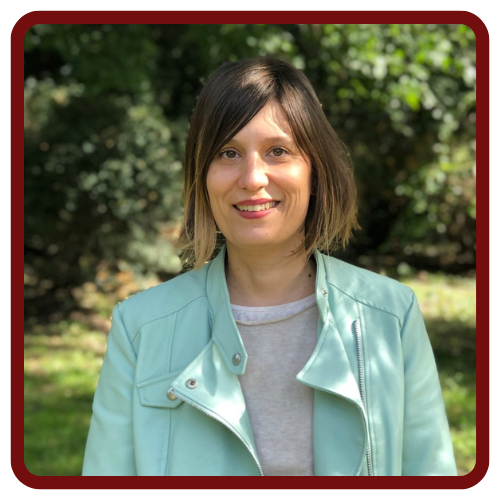
Jana Damjanov, RS
MSc in Clinical Psychology, Sociodrama and psychodrama trainer and supervisor, psychodrama psychotherapist,
Regional Association for Psychodrama and Integrative Psychotherapy and The Center for Sociopsychodrama and Research
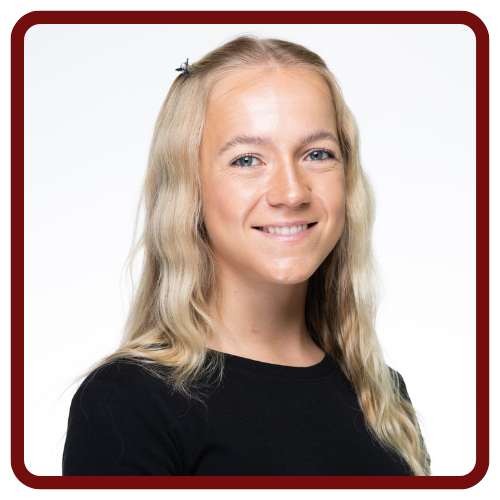
Lucy Davies, UK
PhD student at the Open University

Zsófia Kollányi, HU
Social scientist
Eötvös Loránd University, Faculty of Social Sciences
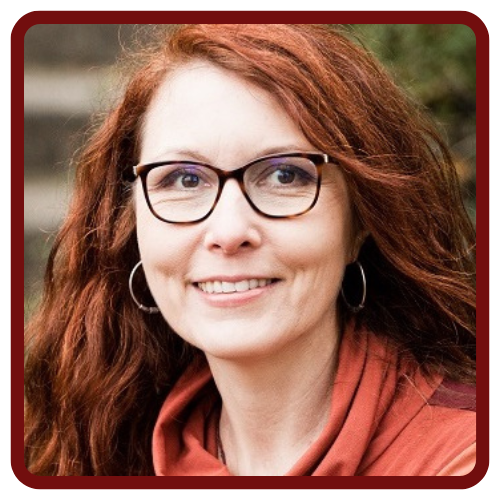
Orsolya Lelkes, AT
Psychodrama facilitator and coach, social scientist
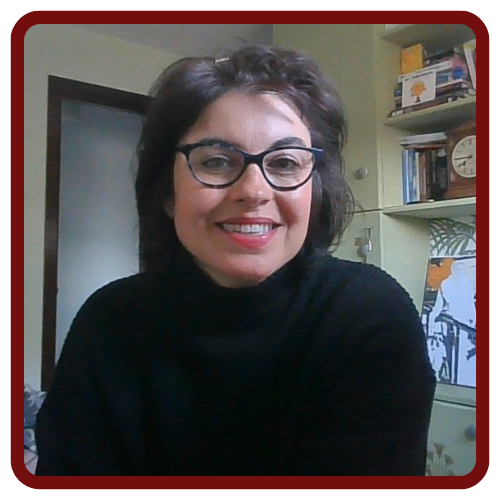
Sarah-Jane Lennie, UK
Charter psychologist
British Psychological Societ; The Open University

Eszter Neumann, HU
Sociologist
HUN-REN Centre for Social Sciences
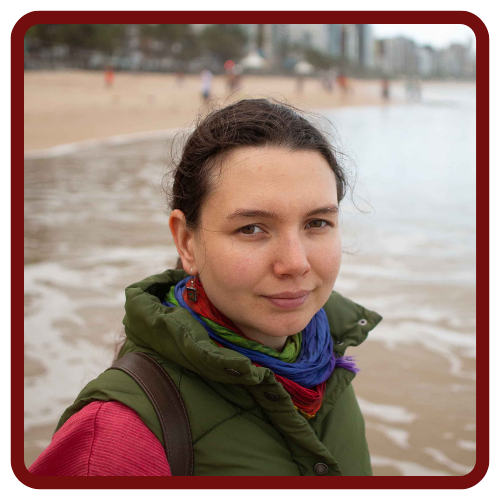
Leyla Safta-Zecheria, RO
Social scientist,
West University of Timișoara, Democracy Institute
WHEN ISSUES COLLIDE.
A LARGE-GROUP SOCIODRAMATIC MULTIVERSE CONSTELLATION
PRESENTER: JOERG JELDEN – VALERIE MONTI HOLLAND
A LARGE-GROUP SOCIODRAMATIC MULTIVERSE CONSTELLATION
DATE AND TIME: 29th of June, Saturday 10:00-12:30
CONFERENCE TOPIC: Sociodrama and the development of creative collectives – local and transnational sociodramatic communities and networks
TYPE: Big group
ROOM:
NUMBER OF PARTICIPANTS: minimum 30
TAGS: Creative Collectives, June29 Morning
ABSTRACT:
A large-group sociodramatic multiverse constellation AI, climate catastrophe, wars, diseases, capitalism – countless crises and transformations are pulling and tugging at our society, our institutions, organizations, communities and at us as individuals. Parallel worlds are emerging and colliding. This is also changing Sociodrama and the sociodrama community.
In this session, we will take a look at the dynamics and interplay within and between these crises and transformations. What does all this do to Sociodrama? We will explore this in action. Based on a bricolage of Sociodrama, Social Presencing Theater (SPT) and Constellations, we will explore how these issues affect Sociodrama simultaneously.
After warm-ups based on SPT, we will explore these five issues. Small groups will define a sociodramatic research question and roles for their issue. Like in a multiverse constellation, an in-group on the main stage then does a piece of action that will inform all the small groups simultaneously. But instead of constellations, we will work with a SPT form called The Village. Sounds crazy? It sure is. We will walk, stand, sit, lay down and make turns. We will laugh and enjoy ourselves – despite the grim issues.
Small groups will explore these topics via roles
- AI, climate, war, diseases, capitalism and sociodrama
- Artificial intelligence and sociodrama
- Climate catastrophe and sociodrama
- Wars/armed conflicts and sociodrama
- New diseases and sociodrama
- Capitalism and sociodrama
The session works best with a minimum of 30 people.
ABOUT THE PRESENTER:
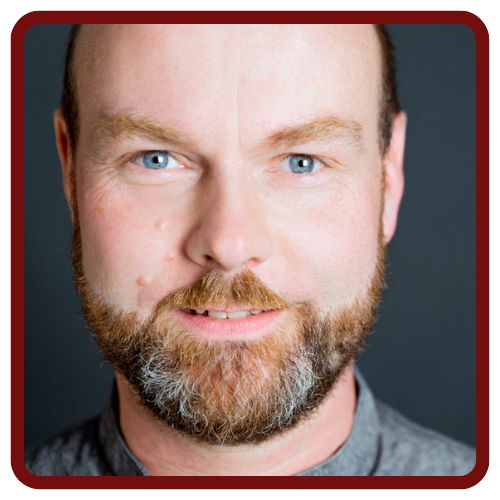
Joerg is a transformation facilitator based in Hamburg, Germany. He works with organizations of all kinds and helps them to develop participatory futures, strategies, and organizational structures. In his work and beyond, he regularly applies action methods like Sociodrama, Social Presencing Theater, Playback Theater, and Clowning to help organizations explore and anticipate change.
For the forthcoming Sociodrama edition of the German Magazine for Psychodrama and Sociometry Joerg Jelden has contributed an article comparing and integrating Sociodrama and Social Presencing Theater.
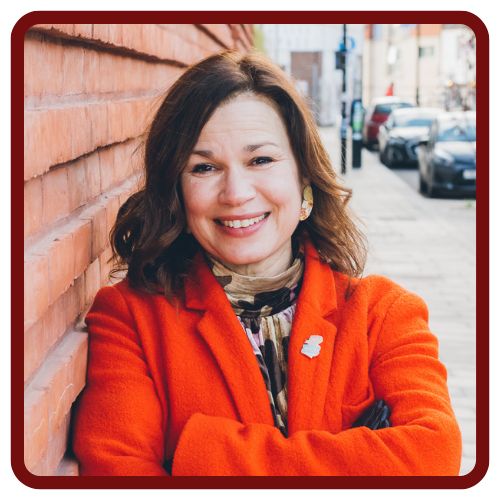
Valerie Monti Holland, MA, Sociodrama Trainer & Executive Committee Member of the BPA, from the UK
Valerie is a sociodramatist working as a facilitator and coach across all sectors and throughout the world. She also chairs the Equality and Diversity in Action committee and is an External Relations rep for the BPA.
THE FOREIGN LANGUAGE CLASS AS A MEANS FOR ENCOUNTER
PRESENTERS: ROBERT ZAMMIT – LARA VINCENT
DATE AND TIME: 29th of June, Saturday 10:00-12:30
CONFERENCE TOPIC: Sociodrama and more – Widening the scope of sociodrama: related fields, methodological exploration
TYPE: Workshop
ROOM:
NUMBER OF PARTICIPANTS: 20
TAGS: Sociodrama and More, June29 Morning
ABSTRACT:
In this workshop, we’ll demonstrate how sociodrama can be used in a foreign language class context.
Participants in a language class are human beings and have to be considered and approached as such.
Our method Psychodramaturgy for Language Acquisition (PDL) is based principally on Morenos conceptions of development and well-being. The concept of the creative circle is key.
“Spontaneity can be trained”, said Moreno. And this is what we do.
PDL is a pedagogical method based on the encounter, on being in the here-and-now. Participants do not study language; they use it as a means for encounter. It is about being, doing and living in the foreign language. The trainer provides the framework and the safe place, and assists the participants in their need to express themselves.
In this workshop, participants will experience language acquisition with the PDL method; a pedagogy on its feet, with content based on the relevance to the participants and the group.
They will be able to apply sociodramatic role-creation and role-playing in a foreign language classroom.
They will be in a better position to reflect on how language is acquired and get practical tools to promote encounter in the foreign language classroom.
ABOUT THE PRESENTERS:
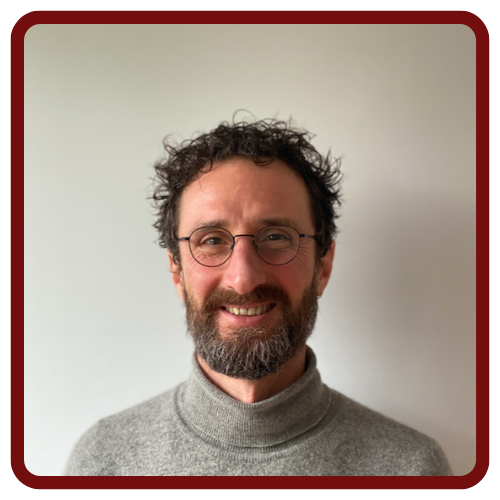
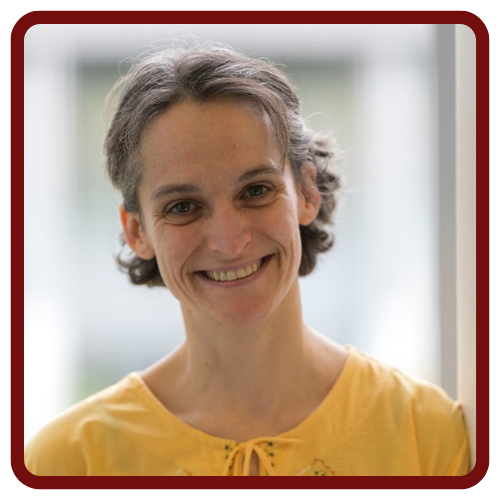
Robert (Malta) and Lara (France) have been teaching language as foreign language to adults for the last 20 years and also to children the last years. They are both certified PDL Trainers and psychodrama directors (DFP Germany). They have a language school, offering PDL courses in various languages and teacher training around Europe.
After attending international Sociodrama workshops, they realised they were not only using Psychodrama, but also Sociodrama in the foreign language classroom, without being aware of it.
Two papers on the relation between Psychodrama, Sociodrama and PDL will appear in the German journal, Zeitschrift für Psychodrama und Soziometrie, in 2024.
ECOPSYCHOLOGICAL CONTEXTS IN FAIRY TALES
– WHAT MESSAGE DOES THE LAND SEND US?
PRESENTERS: ATTILA DONÁTH – Dr. ANDREA KALÓCZKAI
– WHAT MESSAGE DOES THE LAND SEND US?
DATE AND TIME: 29th of June, Saturday 10:00-12:30
CONFERENCE TOPIC: Sociodrama and ecology – environmental issues and relationships between organisms, including humans, and their living context
TYPE: Workshop
ROOM:
NUMBER OF PARTICIPANTS: 16
TAGS: Sociodrama and Ecology, June29 Morning
ABSTRACT:
In this workshop, we will utilize sociodrama techniques to delve into the archetypal messages found within fairy tales, examining their resonance within ecopsychological contexts.
We will be working on the Indian tale The Buffalo Girl and her Friend the Crow (William Camus: Firebirds – a collection of stories).The technique used here uses sociodramatic and playback theatre devices by J.L. Moreno and J.Fox. The theory of interpretation of the fairy tale is based on the Treasure Hunting Story Therapy method created by Márta Antalfai, which is strongly based on the analytic theory of C.G. Jung. The above method combines elements of psychodrama and Jungian analytic-based story therapy.
During the workshop, spiritual work takes place in the group, using the fabric of the chosen fairy tale as a base story, and the main interpsychic conflicts and crises in the story are played out. The focus will be on nature settings and characters symbolically present in the fairy tales, and their impact on humans, especially the protagonist and their human relations.
In the process we personalise important objects, people, and act out the situation. The choice of roles is individual. At the start we will be choosing roles, setting the scene, and afterwards there will be processing and feedback. We will be working with all our senses. This allows us to learn about ourselves, our connections, details we did not know before, which can help us identify our problems. Fairy tales contain special underlying themes, ancient symbols, archetypes, basic conflict patterns, through which we can receive energies from the collective unconscious, beyond the individual consciousness.
This tale explores questions of living together in and with nature, belonging to a group, and the necessary and sufficient use of nature.
We will be focusing on two scenes. In the first one we explore the difficulties of the heroine’s return to the group after growing up in nature. In the other, we will look at two human responses to nature’s eternal bounty – one where greed and insatiability rule, and the other where necessity and moderation dominate.
Through these two examples, we can see the element that is fundamental to the tales, that human changes are closely linked to nature, as if they were an imprint, thus proving symbolically and factually that man and nature are inseparable, and their fate is interdependent.
ABOUT THE PRESENTERS:

Attila Donáth: Completed his psychodrama training in the early ’90s. He has been working for over thirty years as a consultant, organizational developer, trainer, supervisor, coach, and community social worker. In his work, he integrates sociodrama as a method, which he applies widely in various fields.
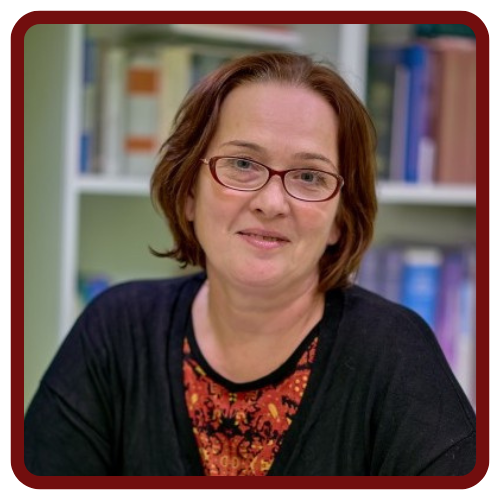
Dr. Andrea Kalóczkai: As a neurological physician, she began to take an interest in the psychological functioning of patients and the effects of the psyche on the body at the beginning of her career. She became a psychodrama psychotherapist and led psychodrama groups for several epileptic patients. She conducts analytically oriented individual therapies with monodramatic elements. Nearly 20 years ago, she started to become interested in fairy tales and narrative therapy based on Jungian principles. Since then, she has been working as a trainer and facilitator of self-awareness groups in this field.
A MOCK TRIAL OF THE GODHEADS:
EXPLORING ANSWERS AND SOLUTIONS (TBC)
PRESENTERS: SHEILA DALLAS-KATZMAN – WHITNEY BELL – UNEEDA BREWER – DAISY MARTINEZ DICARLO
EXPLORING ANSWERS AND SOLUTIONS (TBC)
DATE AND TIME: 29th of June, Saturday 10:00-12:30
CONFERENCE TOPIC: Sociodrama and ecology – environmental issues and relationships between organisms, including humans, and their living context
TYPE: Workshop
ROOM:
NUMBER OF PARTICIPANTS: 40
TAGS: Sociodrama and Ecology, June29 Morning
ABSTRACT:
In a World of Global Warming, the Frequency of Hurricanes and Earthquakes and Floods and Fire,
Are the Gods to Blame?
Why are we having these natural catastrophes? Was this part of the gods’ plan? What is our collective responsibility for our past and our collective future?
J.L. Moreno had the view that everyone is interconnected with and related to the creator. He thinks that a creator, sometimes referred to as the Godhead, is where creativity originates. We propose staging a mock trial to interrogate the godhead(s) entity about creation and the current state of the world to better understand how we may all work together to reverse what we are currently experiencing. Participants will have the opportunity to choose who or what will address the godheads, such as elements in nature and/or representatives of other cultures. They will choose the venue for the trial, such as a conference, a community center, an open area, or a courtroom.
Learning Objectives:
- To have heightened agency to do things in community outside of our comfort zone;
- To reframe the question of blaming;
- To use Sociodrama to build an ecology of praxis for change.and to build an ecosystem around a praxis for social interrogation and intervention.
ABOUT THE PRESENTERS:

Sheila Dallas-Katzman, MA is a passionate applied theatre practitioner with over 30 years of experience using action methods of Theatre of the Oppressed, Sociodrama and Psychodrama with groups in both the private and public sectors.
Sheila is co-founder of Ten Lanterns Transformative Theatre, which uses action methods as tools for social change. Her work focuses on social justice, dismantling racism, war impacted communities, and climate change. Sheila is the co-founder of Food Stories Virtual Encounter, a virtual Theatre of the Oppressed forum using food as a catalyst to highlight issues of food security and insecurity. She is president of the International Association of Women in Radio and Television (IAWRT/USA); and chairs the NYC for CEDAW Act Coalition, working closely with the New York City Council and the Commission for Gender Equity bringing New York City into compliance with CEDAW (United Nations Convention for the Elimination of All Forms of Discrimination Against Women). Through her leadership, New York City now has a Commission for Gender Equity.
She is a member of the Theatre for Social Justice and co-founder of Kings County Black, Indigenous and People of Colour (BIPOC) project developed to capacitate Youth aged 14-24 years in navigating community issues through the arts and media. Her work intersects with both public and private institutions, and grassroots and international organizations. She is a theatre director and actor, and writes plays for stage and radio.
Sheila graduated from the University of Manchester (UK) with a Master’s Degree in Applied Theatre, a Bachelor’s Degree in Broadcast Journalism and Media Studies from Hunter College/CUNY (USA) and a Teaching Diploma in Theatre Arts from the Edna Manley School of Visual and Performing Arts (Jamaica), along with post-graduate credits in Conflict Resolution from Columbia University School of International and Public Affairs (USA). She has received multiple honours for her contributions to the performing arts, radio, and international peacekeeping and in 2018 was awarded the UN Women Champion of Change Award for her work on women and gender. She has been nominated for the 2024 ASGPP Innovators Award and congratulates the winner who well deserved it – her choice too.

Whitney Bell

Uneeda O. Brewer, MSW, TEP, Certified Positive Psychology Coach
Uneeda is an Executive coach using Morenian methods to help clients bridge the individual and collective divides that disrupt the delicate balance required to create and maintain interpersonal and collective relationships. Uneeda offers virtual and in-person workshops and presentations focused on mending the wounds from “white body supremacy” and the racialized trauma experienced both by Black—and other dark bodies– and White Americans in the United States.
She serves as Chair of the American Society of Group Psychotherapy and Psychodrama (ASGPP) Education Committee and is a member of the Finance Committee.
Prior to retiring from full time employment, Uneeda worked for Johnson and Johnson in the Global Talent Management Group. Her major responsibilities were managing one of the company executive leadership development programs and the online multi-rater 360 leadership assessment survey.
Uneeda graduated from Goucher College in Towson, MD with a BA in American Studies. She graduated from the Whitney M. Young, Jr. School of Social Work in Atlanta, GA with an MSW. After graduation Uneeda was employed as a research associate in the School of Social Work Research Center. While working for the School of Social Work she participated in an international social work exchange program, studying the French social welfare system in Paris in the first part of the exchange and afterwards working in a social welfare agency in Marseilles.
Uneeda studied psychodrama, sociometry, and group psychotherapy with Dr. Nina Garcia and Dr. Dale Richard Buchanan. Uneeda earned the Certificate in Positive Psychology from the Whole Being Institute.
Uneeda has presented workshops at the ASGPP national conference and for the online Symposium.
A focus of Uneeda’s work is to explore the necessity of self-healing and demonstrate how practitioners might use sociodrama methods in working with individuals and collectives–communities, organizations, teams–to build on and expand the healing of relationships as well as to co-create more resilience, personal and collective power, and strong, healthy connections.
Uneeda lives in Bradenton, FL with Yogi, her wonderful canine companion, and auxiliary.

Daisy Martinez-DiCarlo, founder, Theatre for Social Justice, is certified in psychodrama, sociometry and group psychotherapy by the American Board of Examiners. She is also a licensed mental health counselor in the state of Florida. She has been practicing psychodrama and sociodrama for over 20 years both in therapeutic and educational settings with children, adolescents and adults. She is also a Practitioner Applicant for Trainer and co-led the Diversity Forum at the 81st ASGPP Conference which was held at Fordham University in New York, USA, where she co-presented “Step into the Shoes of the Teenager Using Sociodrama. Daisy also teaches at the Trial Lawyer’s College and runs psychodrama groups for women who are in recovery from trauma and addiction.
“WAR IN RETROSPECT: STAYING STRONG TOGETHER”
– A SOCIODRAMATIC GROUP EXPERIENCE
PRESENTERS: OLENA KUCHYNSKA – ANGELINA KARIMOVA
– A SOCIODRAMATIC GROUP EXPERIENCE
DATE AND TIME: 29th of June, Saturday 10:00-12:30
CONFERENCE TOPIC: Sociodrama and social healing – recovery from collective crises and collective trauma
TYPE: Workshop
ROOM:
NUMBER OF PARTICIPANTS: Any
TAGS: Social Healing, June29 Morning
ABSTRACT:
During the trying wartime period, Ukrainian psychologists and psychotherapists encountered many challenges in their work. We found ourselves in a new reality we could neither have predicted nor prepared for in advance.
Just like our clients, we, the professionals providing psychological assistance, felt the need for emotional processing, support and connection as well as for professional communication that would enable us to explore the new issues we faced in our work.
Thus, we formed a sociodrama group led by Ron Wiener and Diane Adderley.
The members of the group found the strength to meet during the long months of war and related the reality of traumatic events – manifested by different roles and voices – to the group. We did our best to examine the terrible occurrences and to understand and analyse the processes taking place within ourselves, within our personal and professional relationships, within society at large and the international community. We also observed how these processes were reproduced in the group.
We had to learn on the go and managed to achieve a lot.
During the workshop we will:
- reveal what lies behind the curtain and invite you to take a look at the work done by a group that met during the interminable war months while abiding by the principle of confidentiality;
- tell you how we moved from the declared goal to the needs that arose during our work;
- share the insights the group received due to their work together;
- affirm the importance and effectiveness of the sociodrama method as demonstrated by our experience;
- invite you to the action and the encounter.
ABOUT THE PRESENTERS:
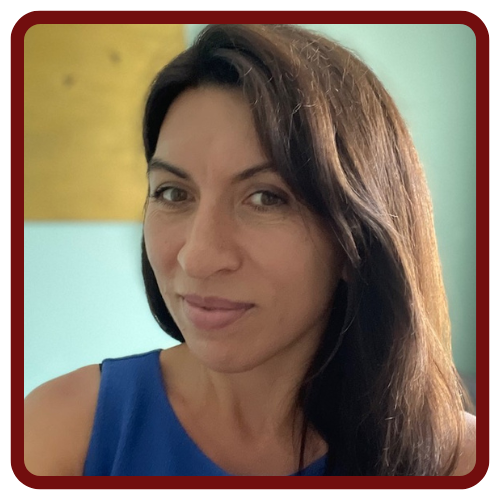
Olena Kuchynska – Psychodrama therapist (Norwegian Moreno Institute certification), private therapeutic practice.
Psychodrama therapist, Trainer certified to conduct social and psychological trainings, sociodrama and psychodrama group leader.
Leader of trainings using the Sociodrama method in various fields: social and psychological trainings for business, holding support groups for teachers, teenagers in rehabilitation centers.
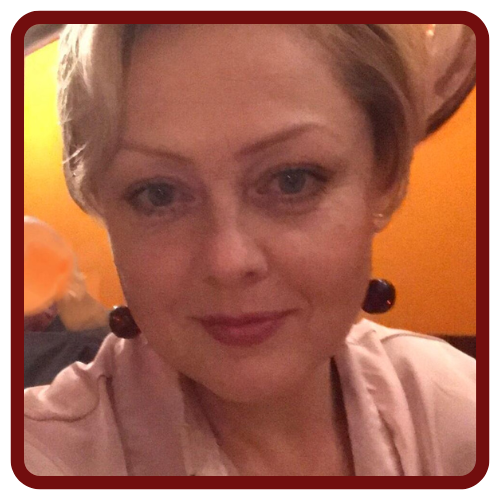
Angelina Karimova – Psychodrama therapist (Norwegian Moreno Institute certification), private therapeutic practice.
Psychologist in private practice, psychodrama therapist, psychodrama and sociodrama group leader. Conducts support groups for adults
FACILITATING COLLECTIVE INTELLIGENCE WITH SOCIODRAMA
PRESENTERS: CHANTAL NÈVE HANQUET – AGATHE CRESPEL
DATE AND TIME: 29th of June, Saturday 10:00-12:30
CONFERENCE TOPIC: Sociodrama and organisational development, team coaching and training
TYPE: Workshop
ROOM:
NUMBER OF PARTICIPANTS: 14
TAGS: Organisational Development, June29 Morning
ABSTRACT:
Using key action techniques such as the “revealing chairs”, metaphors, writing texts, objects or picture cards, the workshop will explore in a sociodramatic way the obstacles and levers to facilitate change and new visions for a collective future in communities, groups and/or working teams. The workshop is articulated in the book “Facilitating Collective Intelligence, a Handbook for Trainers, Coaches, Consultants and Leaders” (Routledge 2029). In addition to the action techniques, an attention will focus on :
- Key inner attitudes to facilitate a sociodramatic work
- Key questions to activate collective intelligence in a sociodramatic work
After this session, participants will be able to :
- Internalize an inner attitude to facilitate a sociodramatic work
- Identify a key question to activate collective intelligence in a sociodramatic work
- Explore the use of an action technique to foster a sociodramatic work
ABOUT THE PRESENTERS:

Chantal Nève Hanquet, founding member of the Federation of European Psychodrama Training Organizations (FEPTO) and a member of the International Association for Group Psychotherapy and Group Process (IAGP).
Chantal Nève-Hanquet’s international career in psychology has encompassed psychodrama, sociodrama, Jungian analysis and family therapy. During fifty years working with groups, she has significantly contributed to the spread of action methods.
Agathe Crespel is a member of the Moreno Museo Association.
Agathe Crespel trained as a psychologist, psychodramatist and sociodramatist, practitioner of action methods in Belgium and France. Over the past fifteen years she has facilitated groups in various professional settings, making extensive use of action methods for supervision, coaching, and the enhancement of creativity.
Agathe Crespel and Chantal Nève Hanquet are both authors of the book : “Facilitating Collective Intelligence, a Handbook for Trainers, Coaches, Consultants and Leaders” (Routledge 2019).
The authors Brussels-based Centre for psycho-sociological training and intervention (CFIP), have extended their practice to Italy, France, Bulgaria, Greece, Switzerland, Sweden, Turkey and the United States through numerous congresses and workshops.
DEMOCRACY IN DANGER?
TRAUMAS AND LIGHTS
PRESENTER: MARCO GRECO
TRAUMAS AND LIGHTS
DATE AND TIME: 29th of June, Saturday 10:00-12:30
CONFERENCE TOPIC: Sociodrama and power – the future of democratic values
TYPE: Workshop
ROOM:
NUMBER OF PARTICIPANTS: 30
TAGS: Sociodrama and Power, June29 Morning
ABSTRACT:
Ideally, J.L. Moreno connects the identity of the individual with that of humanity by underlining how the salvation of the individual cannot be achieved without a simultaneous active focus on the “other”. To articulate the attention on the individual AND on the collective is not always easy.
The workshop will be organize in three phases, as a “socio-psycho-sociodrama” :
1) Sociodramatic approach
2) Psychodramatic phase
3) Returning to the sociodramatic approach.
This will develop an understanding of how the two methodological forms can be integrated without the risk of mixing and confusing them.
After this session participants will be able to
• Outline some constituent elements of sociodrama
• Outline some constituent elements of psychodrama
• distinguish the difference between sociodrama and psychodrama
ABOUT THE PRESENTER:

Marco Greco, Psychotherapist, psychodramatist, sociodramatist. Professor in the “Psychodrama in organizations” course at the Department of Psychology of the Torino University. Director and teacher of the Torino theater of Psychodrama (Via San Domenico 16) of Dr. Giovanni Boria & C. Institute “Studio di Psicodramma” (affiliated FEPTO). Former President (from 2007 to 2012) of the AIPsiM (Italian Morenian Psychodrama Association). President of the Moreno Museum Association (Vienna, Austria; Torino, Italy). Member of the FEPTO Research Committee. Experience in dependence disorders, Director of Therapeutic Communities. President of “FaberActive” (Psychodrama in the organizations). IAGP member.
THE NEW ECONOMY
PRESENTER: DORCHESS DE KONING
DATE AND TIME: 29th of June, Saturday 10:00-12:30
CONFERENCE TOPIC: Sociodrama and more – Widening the scope of sociodrama: related fields, methodological exploration
TYPE: Workshop
ROOM:
NUMBER OF PARTICIPANTS: 6-20
TAGS: Sociodrama and More, June29 Morning
ABSTRACT:
Using action methods, sociometry and sociodrama, we will address anything that comes up with regard to the economy, be it personal or more systemic, and we will give all aspects a place and voice. This approach creates awareness around how our attitude shapes our decisions around money and helps us create strategies for a purposeful Economy.
After this workshop, participants are (more) aware of their own beliefs & behaviours around economic issues and can take home various options to implement change within their circle of influence.
ABOUT THE PRESENTER:
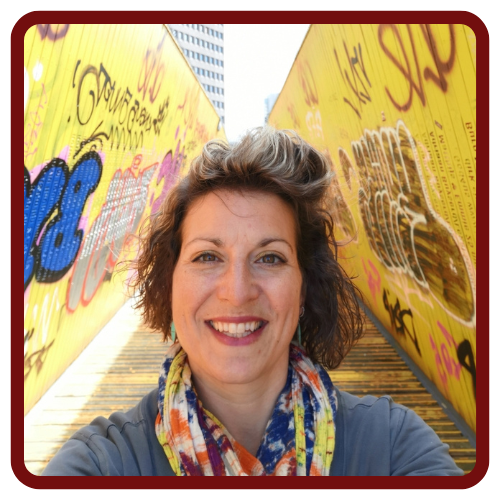
In coaching and training with teams and organisations, I use sociodrama and constellation work as a way to identify and embody the shared theme and to work through a felt sense of resistance and possibility.
USING THE SALUTOGENIC PERSPECTIVE
IN HELPING THE HELPERS IN WAR SITUATION
PRESENTER: JUDITH TESZÁRY
IN HELPING THE HELPERS IN WAR SITUATION
DATE AND TIME: 29th of June, Saturday 10:00-12:30
CONFERENCE TOPIC: Sociodrama and social healing – recovery from collective crises and collective trauma
TYPE: Workshop
ROOM:
NUMBER OF PARTICIPANTS: 30
TAGS: Social Healing, June29 Morning
ABSTRACT:
Salutogenesis – means the origin of health, and pathogenesis is the origin of disease.
How can we help the helpers living under the same circumstances as their clients?
How can they keep their strength and confidence in the role of a therapist during the war, when bombing and missiles are falling around their homes or when they are overwhelmed and stressed by not feeling able to help their clients?
How can the professional helpers care for themselves and not get secondary traumatisation through being too empathetic with their client’s traumatic experiences? What kind of survival strategies do they use? How did the ancestors survive the war they have been through?
How can we come out of the state of hypo and hyper arousal? When the nervous system is overloaded and cannot tolerate the pressure anymore, the system shuts down, and we get paralysed, helpless and numbed. These reactions are the body’s defence mechanisms and are life-saving for the moment, but in the long run, if we stay in these states, these can endanger our lives.
This workshop is a psycho-sociodramatic exploration of how to regain balance, integrate rational and emotional functioning, and tolerate stressful situations (broaden the window of tolerance) by focusing on the resources, thus developing resilience.
Bring your cases or yourself as a case of traumatisation, and let’s learn from each other.
Learning objectives:
- Learn to identify how the body reacts to hypo and hyperarousal
- Learn what the window of tolerance is
- Learn the importance of a support system
ABOUT THE PRESENTER:

Judith Teszáry is a psychologist, psychodrama and sociodrama trainer supervisor, and international lecturer. She has been trained by Zerka Moreno at the Moreno Institute, Beacon, New York. She is a founding member of FEPTO (Federation of European Psychodrama Training Organisations) and was president for six years (2002-2008). She received a life achievement award. She is a member of the Task Force for Peace and Conflict Transformation group using the method of Sociodrama in conflict areas, helping the helpers to elaborate traumatic experiences, for example, after the Maidan revolution in Kyiv. Running two Ukrainian support/therapy groups. She has worked with psychosomatic patients, using psychosociodrama in a research and treatment project at the Karolinska Institute, Stress Research Department in Stockholm. She worked as a psychologist in foster care at Stockholm City Social Department. She trained social workers using sociodramatic methods. She is the chair of the Swedish Association of Psychodramatists.
She is involved in a project as a socio-psychodrama director concerning Romani women’s experiences in Hungarian health care. She has used sociodrama to train Union leaders in the Swedish Industry Union and healthcare personnel in conflict management courses for ten years. She has been the professional supervisor and international coordinator of P.E.R.F.O.R.M.E.R.S, an Erasmus + project in Sociodrama. She had been a trainer and supervisor in the first sociodrama pilot training in Hungary within the Hungarian Psychodrama Association (MPE)
She led the first sociodrama pilot training in Kairo, Egypt. She started a complete training program in Sociodrama in September 2023 at the Rakhawy Institute for Training and Research in Kairo.
EMPATHY IN ACTION:
EXPLORING SOCIODRAMATIC TECHNIQUES FOR HELPERS
PRESENTERS: GÁBOR CSUVIK – KRISZTINA GALGÓCZI
EXPLORING SOCIODRAMATIC TECHNIQUES FOR HELPERS
DATE AND TIME: 29th of June, Saturday 10:00-12:30
CONFERENCE TOPIC: Sociodrama and youth – raising the next generation: sociodrama of children and young people, and the professionals and institutions working with them
TYPE: Workshop
ROOM:
NUMBER OF PARTICIPANTS: 20
TAGS: Sociodrama and Youth, June29 Morning
ABSTRACT:
In this workshop, helping professionals and educators will gain insight and firsthand experience into how sociodramatic techniques can enhance their skills, especially in intercultural settings. Participants will explore their helper role and function as we gain insight into working with clients from diverse backgrounds. The workshop will also provide an opportunity to explore the sensitivities associated with disadvantaged group affiliations and stigmas, and their impact on the helper-client relationship.
The workshop’s methodology was conceived and refined in the unique setting of training volunteers for a suicide prevention line. The preparation, planning, and supervision of the approach were conducted within the context of the inaugural sociodrama training in Hungary.
ABOUT THE PRESENTERS:
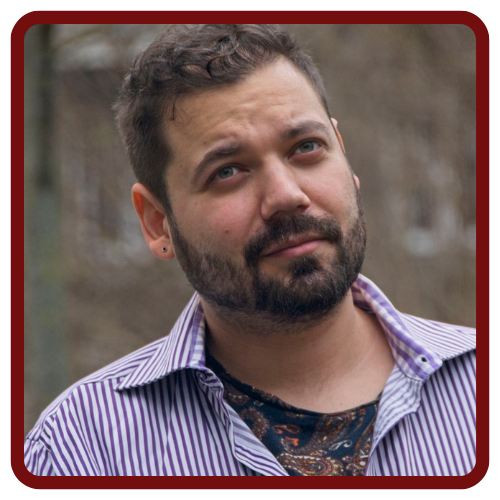
Gábor Csuvik, Sociodrama Working Group of the Hungarian Psychodrama Association
psychodrama assistant, sociodrama assistant, social worker
With a foundation in social sciences, Gábor has extensively explored the dynamics of training groups where diverse backgrounds and experiences intersect, often leading to challenges in establishing safety and facilitating self-expression. As an alumnus of Hungary’s inaugural sociodrama training program, he has incorporated sociodramatic techniques in his practice to foster cultural sensitivity and create inclusive environments for individuals from varied backgrounds. Furthermore, he is an active contributor to the Sociodrama and Critical Psychodrama Working Groups within the Hungarian Psychodrama Association.

Krisztina Galgóczi, Sociodrama Working Group of the Hungarian Psychodrama Association
psychodrama and sociodrama leader
For 7 years, she has been actively involved in sociodrama in the PERFORMERS international project, in university education, schools, social institutions, and public sociodrama events to address societal issues. She believes that sociodrama can lead to changes in society. She has participated in the PERFORMERS international sociodrama project and contributed as an editor and author to the resulting volumes. She has been leading the Sociodrama Working Group of the Hungarian Psychodrama Association since 2019.
PREVENTION OF CARE-GIVER DISTRESS IN PALLIATIVE HOME CARE WITH INCURABLE DISEASES
PRESENTER: MARIA GABRIELLA NICOTRA
DATE AND TIME: 29th of June, Saturday 10:00-12:30
CONFERENCE TOPIC: Sociodrama and more – Widening the scope of sociodrama: related fields, methodological exploration
TYPE: Workshop
ROOM:
NUMBER OF PARTICIPANTS: 25
TAGS: Sociodrama and More, June29 Morning
ABSTRACT:
Aims
1) to promote psychosocial development as the ability to be self-aware, regarding the inner world, and respect one’s own emotional experience within a care context.
2) to improve their relational ability and communicative skills, developing deep communication and creative solutions in difficult and extreme situations.
3) to establish a safe relational field in which to think and process the theme of lack, loss and death.
Jung spoke of the archetype of the wounded healer, who holds within himself two opposite poles: the healer and the wounded. More relevant than ever in the care professions.
Developing their own experiences will allow everyone to learn from relationships with patients and families, to learn from experience. Creative ability to perceive and improve the characteristics of families at home will be stimulated, focusing on the positive resources of environmental contexts.
Method:
Communication, Active listening, Narrative Medicine, Socio-Psycho-drama, Art Therapy will be presented both in terms: patient and family care, group team work.
To create a space in which participants can reflect critically on interpersonal relationships within the care relationship with users and families. We can meet the myth of the omnipotence of medicine with the ancient myths of Chiron and the transience of life, and process mourning experiences together.
ABOUT THE PRESENTER:

Maria Gabriella Nicotra
Psychologist, group-psychotherapist, psychodrama therapist. Psychodrama and socio-drama for Prevention-creative, training and supervision groups, more than 40th years experience.
National Co-President A.M.P. and director of Sicilian Session A.M.P. (Associatione Mediterranea di Psicodramma).
Workshops: IAGP Sociodrama Conference Iseo 2019
IAGP congress Malmo Sweden 2018
IAGP Congress Rowini Croatia 2015
IAGP Sociodrama Portugal 2014
Symposium and workshops -Rome Italy 2009
Workshops -S.Paolo Brazil 2006
Workshops -FePTO from 2010 to 2018 in Europeean Psychology Congress 2015 /2018
Workshops in Annual meetings “ Associazione Mediterranea di Psicodramma” from 2000 to 2023
MINDFUL CONFLICT MANAGEMENT:
BUILDING COLLABORATIVE CULTURE AT THE WORKPLACE
PRESENTER: RASHMI DATT
BUILDING COLLABORATIVE CULTURE AT THE WORKPLACE
DATE AND TIME: 29th of June, Friday 10:00-12:30
CONFERENCE TOPIC: Sociodrama and organisational development, team coaching and training
TYPE: Workshop
ROOM:
NUMBER OF PARTICIPANTS: 20
TAGS: Organisational Development, June29 Morning
ABSTRACT:
Learning Objectives:
After the session participants will:
- Assess their conflict resolution styles;
- Gain increased understanding about the dynamics of conflict and dissent, understanding its potential benefits;
- Shape their own unique approach towards handling it productively.
Methodology:
• Warm-up prepares participants to come together & develop the enactment;
• scenic imagery; constellations, sculptures;
• Presentation by director; thematic work in small groups; group discussions, etc.
Theory and basis:
There are three types of Sociodrama: Topic centered sociodrama ; Group centered sociodrama; Sociocultural sociodrama. (Ameln and Becker-Ebel).
This workshop demonstrates Topic Centered Sociodrama.
The framework used is Thomas Kilmann’s Model of Different Styles of Handling Conflict
Bibliography:
Ameln F., Becker-Ebel J (2020). Fundamentals of Psychodrama. Springer Singapore.
Sternburg, P. & Garcia, A. (1989). Sociodrama: Who’s in Your Shoes? Praeger Publishers, New York.
Dayton, T. (2005) The Living Stage; a step-by-step guide to psychodrama, sociometry and experiental group therapy. Deerfield Beach, FL: Health Communications, Inc.
Galgoczi K, Adderley D, Balsko A, Belchior M, et al (2021) Sociodrama: The Art and Science of Social Change. L’Harmattan.
Wiener R, Adderley D, Kirk K. Sociodrama in a Changing World .Lulu.com
Wiener R. Creative Training. Sociodrama and Team Building.
ABOUT THE PRESENTER:

Rashmi is an international Organisation Development consultant and coach, helping teams and individuals become resilient, responsive and vibrant.
She started her consulting practice in 1993 after working with Pfizer for 8 years, and has over 30 years experience. Her intervention is through action methods based on psychodrama, sociodrama and sociometry. She brings the “whole system into the room” to bring renewal in the organization.
She is the CEO of Vedadrama, which provides training for those who wish to pursue a certification in Psychodrama.
She is an ICF certified PCC Coach.
SOCIODRAMATIC INTERVENTIONS WITH GROUPS IN SOCIAL DIFFICULTIES
PRESENTERS: PABLO ALVAREZ VALCARCE – PÉTER KLAUSZ
DATE AND TIME: 29th of June, Saturday 10:00-13:00
CONFERENCE TOPIC: Sociodrama and youth – raising the next generation: sociodrama of children and young people, and the professionals and institutions working with them
TYPE: Workshop and Presentation
ROOM:
NUMBER OF PARTICIPANTS: 100
TAGS: Sociodrama and Youth, June29 Morning
ABSTRACT:
WORKSHOP:
The workshop offers a view on sociodrama techniques applied in the context of social work with migrant communities. This method is used to foster social learning, mental health and interven-tions to provide young migrants an opportunity to gain insight into the obstacles and widen the repertoire of strategies when building their future in their new home country.
Theoretical background: Youth immigrants and their poorly structured families suffer a kind of personality disorder with a lack of mentalization abilities, lack of mental health attention and severe difficulties to become integrated into social and work structures. The best way to address this situation is through Specific Social Structures for them, that includes social learning and education, group sociodramatic interventions, support in work training and work searching and psychodramatic mental health assistance.
Methodology: Sociodrama , Psychodrama, Mentalization, Group for Social Active Learning
Learning objectives:
- Participants gain an understanding of the psycho-social background of working with migrant youth entering the labor market
- Participants try different sociodramatic and mentalization techniques they can use in their practices with migrant groups
PRESENTATION
The proposal contains presentations of projects from Spain and Hungary on how sociodrama and action methods can be effective tools in supporting marginalized youth when they enter the labor market. These share similar target groups (young migrants), and involve professionals in supporting roles (social workers, educators, psychologists). These groups’ social, economic or cultural backgrounds mean that they face multiple obstacles when aiming to get jobs and reach independence. The application of sociodramatic techniques fosters the identifying of such obstacles and experimenting with new strategies in work-related and family environments, supporting them to reach a higher level of independence, allowing them to create a new future for themselves.
Theoretical background: Youth immigrants and their poorly structured families suffer a kind of personality disorder with a lack of mentalization abilities, lack of mental health attention and severe difficulties to become integrated into social and work structures. Best way to address this situation is through Specific Social Structures for them, that includes social learning and education, group sociodramatic interventions, support in work training and work searching and psychodramatic mental health assistance.
Learning objectives: Giving examples of application of sociodrama techniques with migrant youth
Demonstrating modalities of sociodramatic techniques with youth and their supporters
ABOUT THE PRESENTERS:
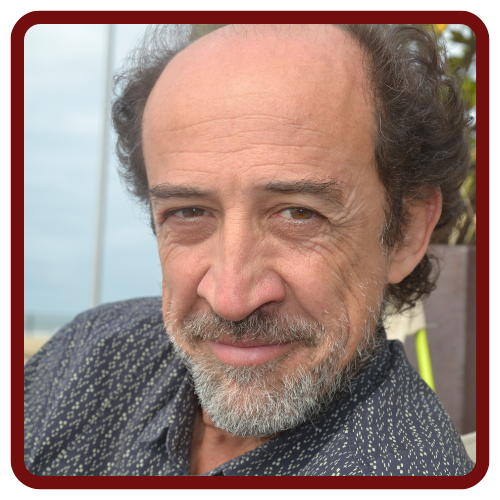
Pablo Alvarez Valcarce is a Director of Psychodrama and Sociodrama from Spain. Founder and Director of the Grupo de Estudios de Psicodrama de Madrid. He´s Supervisor member of the Spanish Psychodrama Association(AEN). He has extensive experience in psychodramatic and sociodramatic intervenctions in areas ranging from psychiatry to organizational coaching and social intervenctions. Actually he is overseer of the Team working in a program of Social learning and employment integration for young migrants at Madrid Municipal Gobernment, and also overseer of the Team at the Personality Disorders Unit at the R,Lafora Mental Hospital at Madrid.
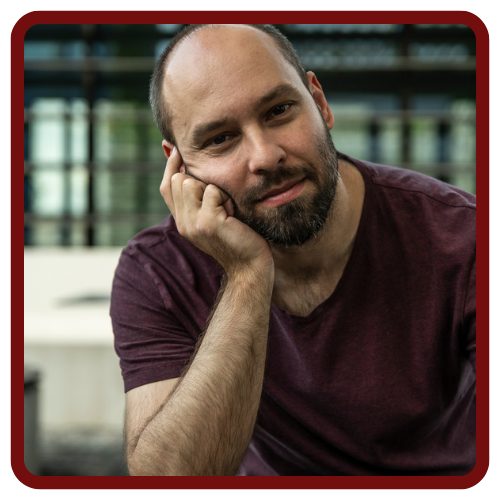
Péter Klausz – former student of Pablo Alvarez Valcarce, trainer at Artemisszió Foundation.
He is specialized in global education and social inclusion of marginalized groups, in his training practices he applies drama-based and active methods.

